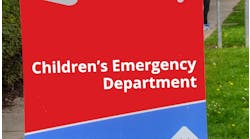A consortium of universities and research groups has received a five-year, $25 million grant from the National Center for Advancing Translational Science to create a new National Center for Data to Health (CD2H).
The award will coalesce and coordinate informatics activities across the Clinical and Translational Science Award (CTSA) Program, a network of more than 50 medical research institutions, to provide collaborative clinical and translational research infrastructure.
The participating organizations are Oregon Health & Science University, Northwestern University, University of Washington, Johns Hopkins University School of Medicine, and Sage Bionetworks, together with The Scripps Research Institute, Washington University in St. Louis, the University of Iowa, and The Jackson Laboratory
The new National Center for Data to Health will be led by Dr. Melissa Haendel (OHSU), Dr. Kristi Holmes (Northwestern University), Dr. Sean Mooney (University of Washington), Dr. Christopher Chute (Johns Hopkins University School of Medicine), and John Wilbanks (Sage Bionetworks). Mooney is the site principal investigator for the University of Washington, Chief Research Information Officer of UW Medicine and a Professor in the Department of Biomedical Informatics and Medical Education.
“The goal is to unlock the amazing wealth of technologies and innovation located within each individual CTSA and to create cohesive communities of practice founded on the fundamental premise that team science, data sharing, and collaborative innovation can advance patient care,” said Haendel, in a prepared statement.
The CD2H will be tasked with several priorities to support a vibrant and evolving informatics ecosystem, including: support and enhancement of a collaborative informatics community; development of Good Data Practice (GDP); promotion of software standards for interoperability; growth of collaborative innovation across informatics tools, methods, and processes; advancement of cutting edge biomedical research informatics; data science education for CTSA Program researchers; and novel methods and tools for the evaluation of the impact of these activities to enhance health care through data and informatics.
“As scientific research is transformed by big data, high-performance computing, and real-time publishing, the structure and composition of scientific teamwork is also changing, said Dr. Kristi Holmes, director of evaluation at the Northwestern University Clinical and Translational Sciences Institute and Director of the Galter Health Sciences Library & Learning Center at Feinberg School of Medicine, said in a prepared statement. “Here we aim to grow the informatics-based architecture needed to support interdisciplinary teams so that diverse contributions are valued and recognized — enhancing knowledge transfer, discovery, and impact on health.”

